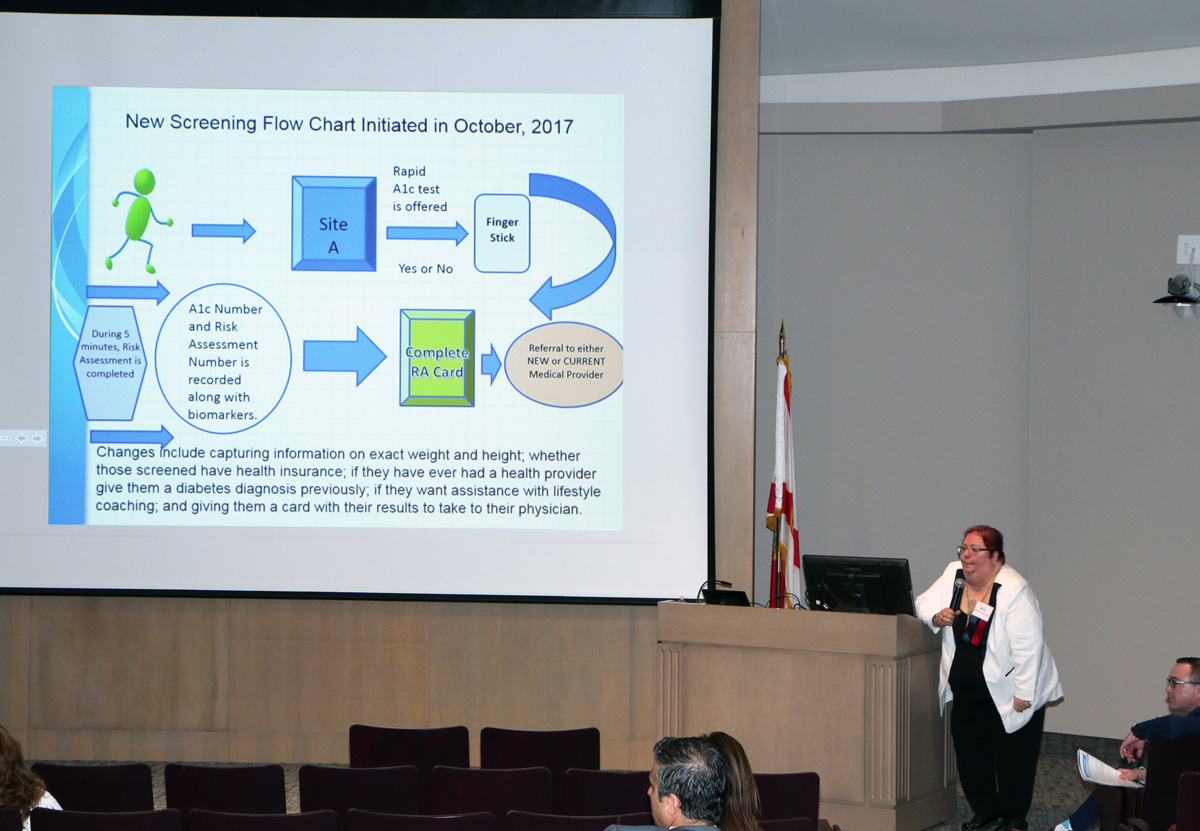| Total Number of Diabetes Risk Assessment Screenings Completed 12,238 | ||||||
|---|---|---|---|---|---|---|
| 2012 | 2013 | 2014 | 2015 | 2016 | 2017 | 2018 |
| 740 | 927 | 2,578 | 3,026 | 3,425 | 1,542 | 1,336 |
| Percentage Found to be At Risk (4+ Risk Factor Score) of Developing Diabetes | ||||||
| 46.40% | 53.90% | 58.90% | 59.90% | 57.49% | 55.04% | 58.5% |
DIABETES RISK ASSESSMENT DATA ANALYSIS REPORTS
The Coalition Fully Implements a More In-Depth
Diabetes Risk Profile and New Data Analysis Platform
After many months of working in tandem with several pilot sites, reviewing, and analyzing findings, the Diabetes Coalition implemented a more in-depth diabetes risk assessment screening process, which included an expanded Diabetes Risk Assessment tool with additional health biomarkers and demographic questions.
During November 2017 Diabetes Awareness Day, the Coalition began to formally introduce A1c tests (A1c Now+) which are considered the “gold standard” for measuring blood glucose. With portable A1c meters, we can now measure average blood glucose over the past 2-3 months which will provide a more accurate risk assessment score.

In fall 2019 the Coalition will begin to offer rapid on-site result lipid panel profiles (CardioChek Plus) to participants, which will again further expand the risk assessment profile. While taking longer to complete the assessment process, the results provide a much more accurate reading and prediabetes risk score to participants, which is also useful to health care providers in developing a treatment plan.
Due to data analysis limitations, and the goal of going to “paperless” diabetes r isk assessment forms via completion by iPad tablets, in early 2019 the Coalition began working with Palm Beach Software Design to construct a data metrics program specifically designed to address our needs. In June 2019 we began to test the new platform, which will now allow us to quickly download and analyze screening results, forwarding participant information and referrals for follow-up services.
In addition to providing individual health information, data from the risk assessments and health biomarker tests completed throughout the year, are compiled and analyzed annually. The Diabetes Coalition generates a report containing demographic and geospatial data that is made available to members, partners, and the public to be used in their prevention, health care intervention, and educational outreach efforts.
The key findings of these reports are outlined in the reports provided below. If you have any questions, or would like additional information, please contact the Diabetes Coalition.
Presentations for previous years’ risk assessment data findings are provided below.
